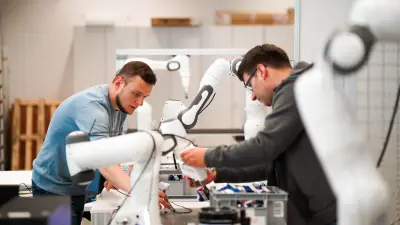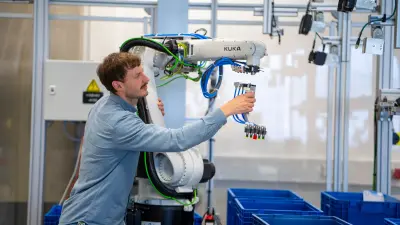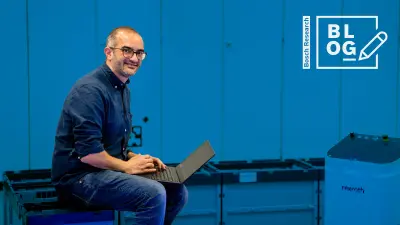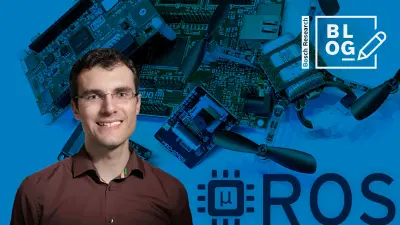The future is now — research on automation in robotics
Robotics in industry, logistics and consumer goods
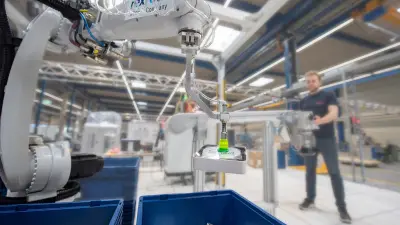
Robots have long since been more than just industrial manipulators, securely installed behind bars, following the same procedures over and over again. Technological advances in recent years mean that robots are now increasingly able to cope with less structured, frequently changing environments and tasks. Nowadays, they provide support in factories, warehouses, hospitals, hotels, on building sites and even at home. Bosch Research recognized this trend early on and is actively driving the future of robotics. Its research focuses on two key questions: Firstly, how can robots reliably navigate unfamiliar environments in order to perform their tasks intelligently and independently and learn from mistakes to continuously improve? And secondly: How can robots interact safely and comprehensibly with humans so that they really become omnipresent helpers?
The future of automation

Robotics is taking on a key role in the factory of the future. One example is mobile transport systems that support the logistics and production processes in manufacturing and warehouses by moving around independently and freely. Using modern “Simultaneous Localization and Mapping” (SLAM) methods which Bosch Research is researching, robots can not only map their environment and detect changes independently but also recognize and classify objects, parts and places. Many of our developments are tested and used in Bosch’s own plants. In the field of automation technology, Bosch Research also cooperates with various business units of the Bosch Group, in particular with the in-house subsidiary Bosch Rexroth, as well as institutions from the academic world.
In a changing world where sustainability, stable supply chains, availability of skilled labor and domestic production are becoming increasingly important, highly flexible and robust automation solutions are a key competitive factor when it comes to designing and developing the factory of the future. Through its research into robotics, Bosch is helping to shape this development. As a global technology company, it is involved in a full range of areas from research and development to the production of components, machines and software. Bosch also has a wealth of expertise as a user and provider of robotic solutions.
Robots and humans living and working together — a major goal of robotics research

Robots of the future must be able to present their intentions so well that the people around them intuitively understand them. And conversely, the robots must understand and, if possible, anticipate human behavior. This applies to robots in production and robots in homes. In many cases, the robots actually “cooperate” with people. Human behavioral patterns are sometimes unpredictable to robots and require a great deal of computing effort so that the robots can recognize them in real time. This must be taken into account during development. That is why Bosch Research focuses on researching and developing technologies that give robots — as with autonomous driving — “senses”. It is also researching motion planning algorithms for collaborative robots. These register the detected movements of people in the environment and ensure autonomous and adequate motion in three-dimensional space so that dangerous situations in which the robot has to make an emergency stop do not occur in the first place. This applies equally to collaborative robot arms and mobile robots in intralogistics, professional cleaning and off-road applications as well as to consumer robotics which many people are already familiar with from mowing the lawn or vacuuming.
Interdisciplinary research inside and outside Bosch

Many different disciplines come together in robotics: Sensor systems, artificial intelligence, control technology, system development, software engineering, simulation, computer vision, human-machine interaction and many more. The team at Bosch Research is therefore made up of experts from numerous different fields — all spread around the globe. We also carry out research with a number of academic institutions and universities such as the University of California in Berkeley, the Technische Universität München (TUM), the École Polytechnique Fédérale de Lausanne (EPFL), the Rheinisch-Westfälische Technische Hochschule Aachen (RWTH) and the Istituto Italiano di Tecnologia (IIT) in Genoa.
